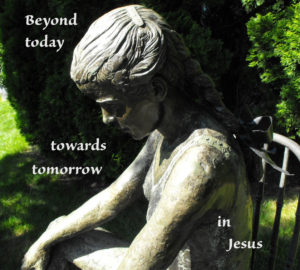
People have been making “New Year’s Resolutions” for 4,000 years. The Babylonians are an example; promises about things like –paying back debts or returning borrowed objects. Early Christians also declared the first day of the New Year as a holy time to reflect on past mistakes and to choose to live a better life for Jesus Christ. Even in today’s secular world as many as 46% of us make “New Year’s Resolutions” about improving ourselves in the coming year.
We hope that “Lockdowns” and “stay-at-home” orders have given you time to reassess what you are doing with your life. There is nothing like a pandemic to make space in our often-frantic lives. The “reopening” of our economy is another, similar opportunity to make resolutions about daily life, socializing, and even parish worship. Then, with God’s help, it will be possible to carry some of the positive daily life changes forward. Here are ten suggestions for post-pandemic behaviors and a “new normal” as Christians:
- Thank God for the simple blessings in our lives (family members, the internet, toilet paper).
- Be more willing to accept help from others and advice from accurate sources. Study and pray to the Holy Spirit for discernment when this becomes difficult.
- Restructure your days to include personal and family prayer time.
- Reach out to support family, friends, and neighbors in a consistent way.
- Use the internet and cell phones to foster relationships (Facebook, Zoom, instant messaging, Facetime and other social media). Learn how if necessary.
- Be more intentional about scheduling shared meals [when allowed] with family and friends in places where air can circulate freely.
- Eat right, exercise daily, and get better sleep.
- Reassess what you do with your spare time and money. What are your “real needs”, not your anxiety-based desires. Give to your parish.
- Treat adversity as an opportunity for intellectual, emotional and spiritual healing.
- Exercise compassion for and communion with those who suffer: the poor, homeless, sick, aged, and those who have no faith tradition to call their own.
Finally, this pandemic and a “new normal” can help us repent of thinking that we are in control of our lives. We are not! We need to surrender to God’s gift of humility. What we CAN control is our response to God’s ever-faithful, but sometimes illusive, presence. “Even though I walk through the darkest valley, I fear no evil; for you are with me; your rod and your staff— they comfort me.” (Ps. 23:4) And as Pope Francis points out, “There is never a reason to lose hope. Jesus says: ‘And remember, I am with you always, to the end of the age.’” (Mt. 28:20)
